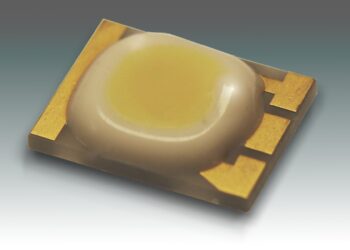Calterah Semiconductor secured a DOW deal of HASCO, an international auto parts Tier-1 supplier, with its mmWave radar AiP (Antenna-in-Package) chip product. Calterah’s sales director apprised about the move. The company’s AiP chip product is adapted by HASCO for the door open waring (DOW) feature of some premium car models to be mass-produced next year.
The salient features of Calterah AiP like its compact size, high performance and low power consumption made it stand out, said the R&D head of HASCO ADAS BU, adding time and costs for antenna design were saved and thus the DOW project could be accelerated. According to HASCO, the DOW feature is not exclusive to premium cars and the next few years will see a greater presence of DOW in economy ones. As a result, the cost, size and ease of use of the radar enabling such a feature are among the first to be considered.
As a leader in CMOS mmWave radar sensor chip development and design, Calterah in 2019 rolled out its second-generation auto-grade CMOS 77-Ghz mmWave radar sensor AiP chip products.
The advantage of the AiP technology is making it a reality that the size of radar modules shrinks to one tenth of that of the traditional ones or even smaller while maintaining relatively high performance. Customers no longer need to design or develop antennas, or use high-frequency PCBs in manufacturing, thus making easier the module production and reducing the R&D cycle time and costs.
Regarding reliability and safety, which is essential to ICs, Calterah’s auto-grade AiP products meet the requirements of AEC-Q100 qualification and is compliant with ISO 26262 Functional Safety management process while undergoing a complete set of proprietary testing procedures.
Featuring an architecture of 4T4R (four-channel receiver and four-channel transmitter), Calterah’s AiP products come from the Alps and Rhine families, working at 77/79 GHz and 60 GHz for the auto and industrial markets, respectively.
Auto Applications
As an essential sensor for vehicles, mmWave radar can be applied to various advanced driver-assistance systems (ADAS) features, including autonomous emergency braking (AEB), forward collision warning (FCW), lane change assistance (LCA), blind spot detection (BSD), automatic parking system (APS), etc. Inside the cabin, mmWave radar can measure the driver’s vital signs by detecting the micro motion caused by breathing and heartbeats, and determine whether there are humans or any pets. In addition, mmWave radar is more privacy-friendly than cameras. On top of these benefits, AiP-based sensors as mentioned are more compact and cost-efficient, making it easier to install them at the dome light or elsewhere.
Industrial Applications
The advent of AiP products also means more possible applications in the fields like smart home, elder care, etc.
Take air conditioning (AC) as an example. Calterah has developed a smart AC solution with the following features:
- Accurate positioning, which enables tracking of the precise positions of people in a room, so as to better control the direction of air flow. The feature differentiates the motion of people from the micro motion of objects like electric fans and plants, so as to avoid false triggers of AC functioning.
- Facility measurement, which enables an air conditioner to adjust its power according to the size of a room.
- Posture recognition, which enables the differentiation of adults, children and pets and recognition of postures like falling, sitting, lying, etc. by using the MIMO technology to obtain the heights of human bodies in motion.
- Respiration and heartbeat detection, which is capable to determine whether a person has fallen asleep by sensing changes in the respiration rate.
Calterah will launch new product where next-gen CMOS mmWave radar AiP chips with greater competitiveness in size, power consumption, ease of use and cost will be unveiled.








